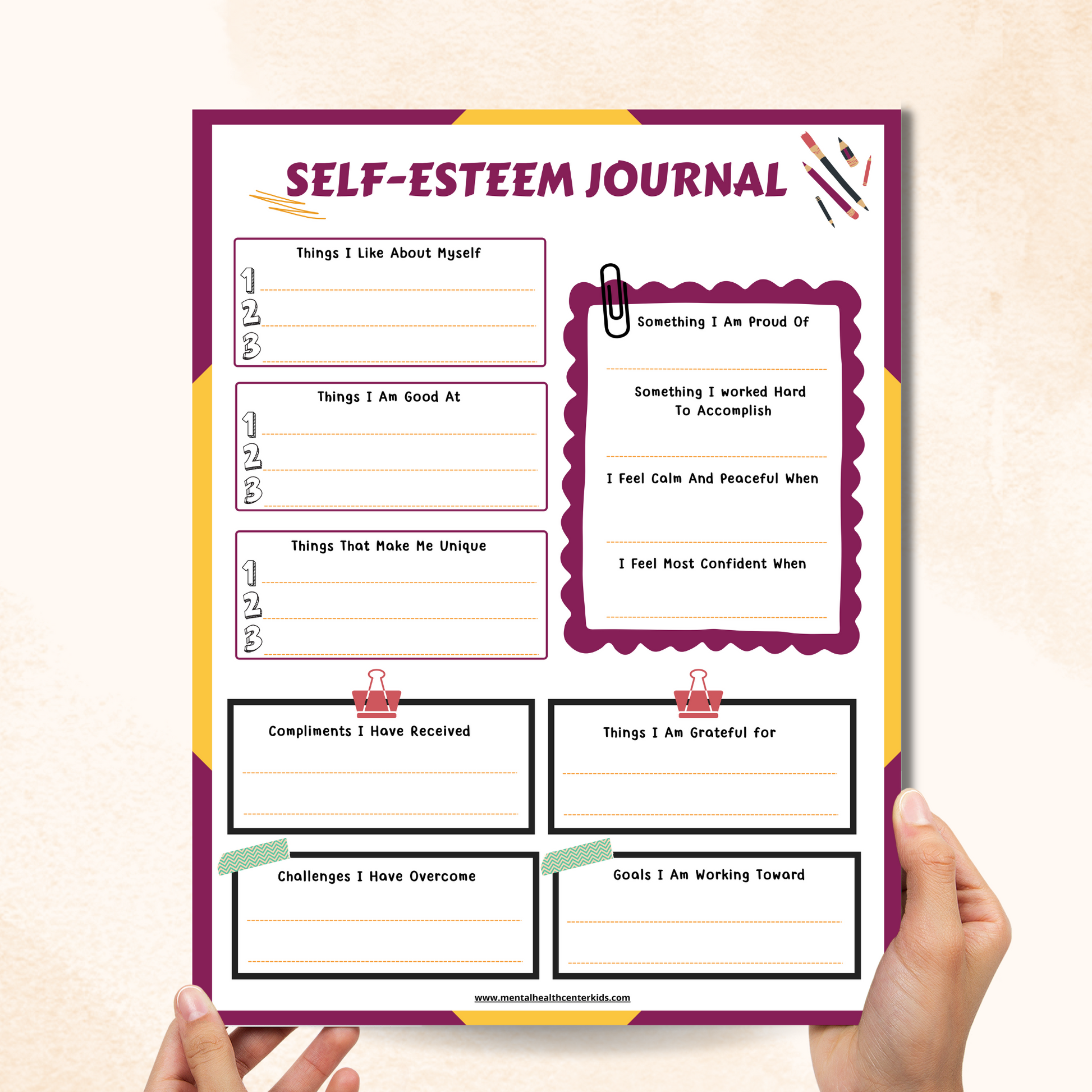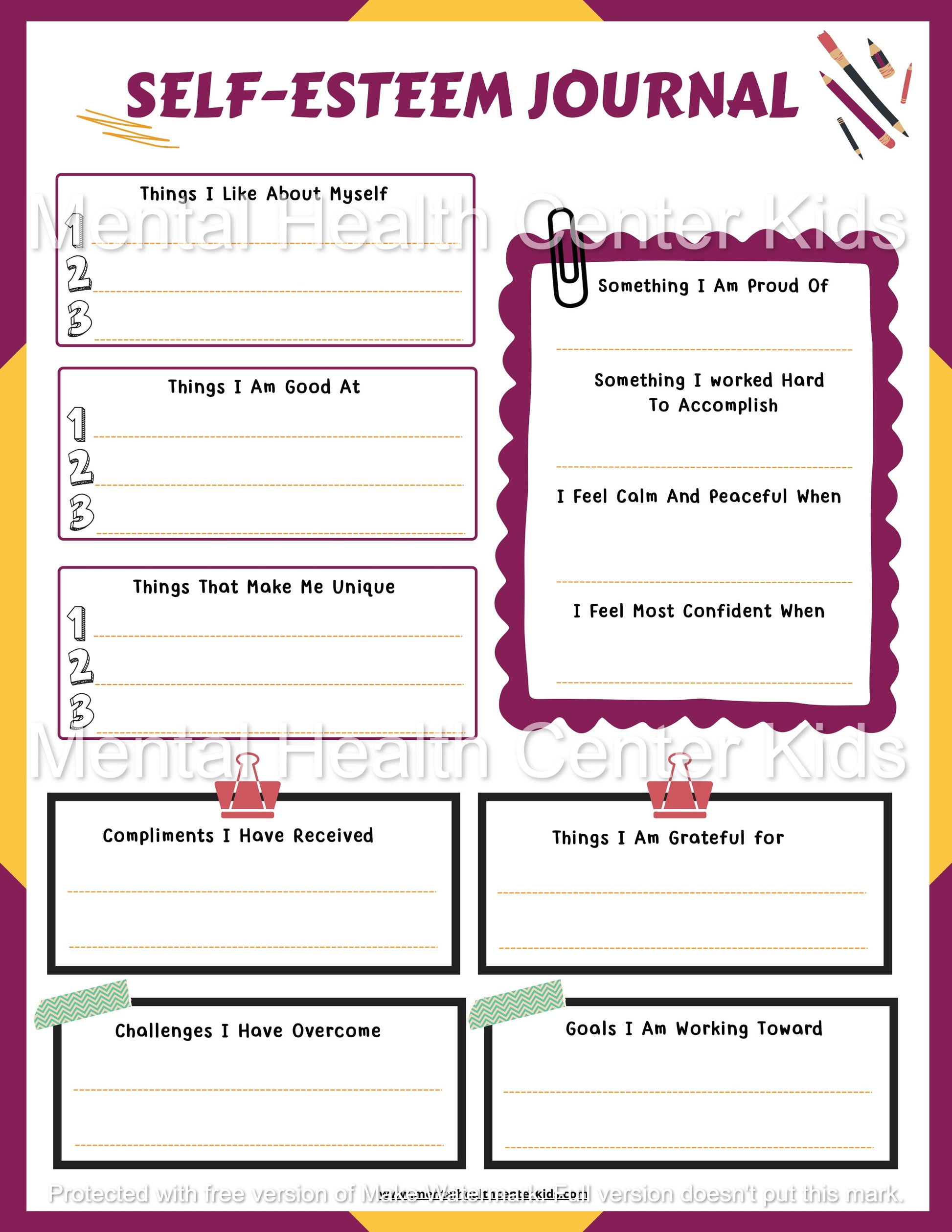Self-Esteem Journal
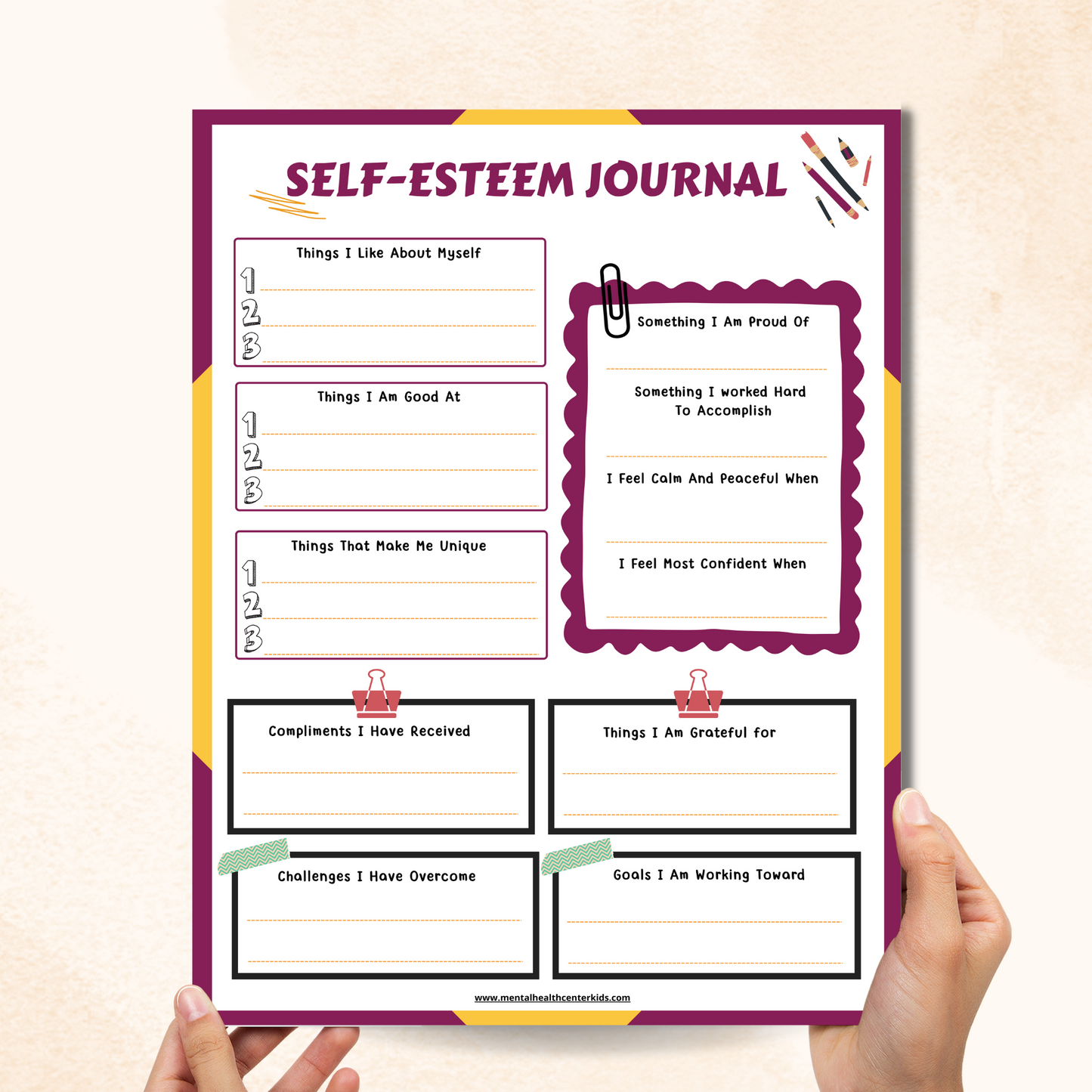
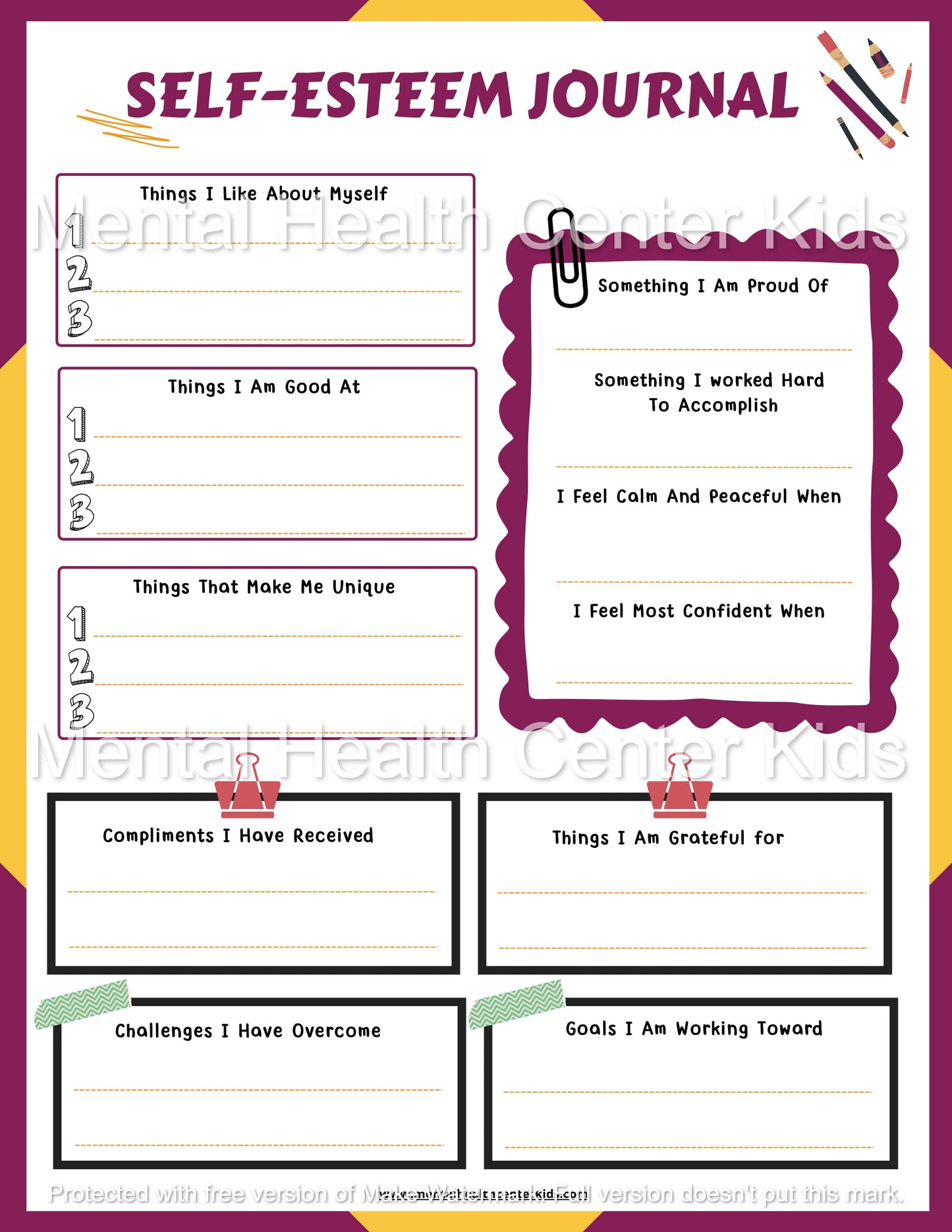
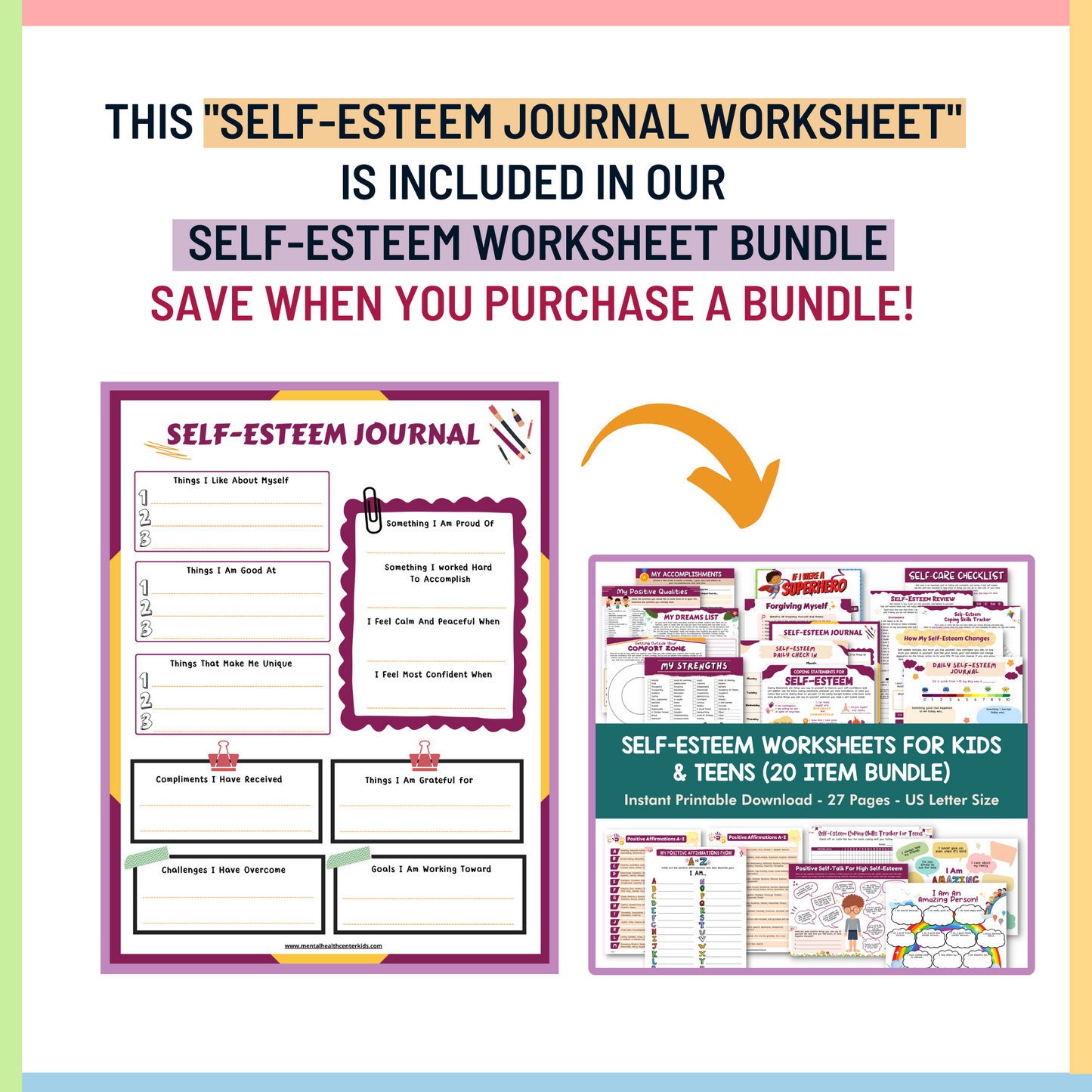

Journaling about things that make a person feel good allows clients to focus on positive experiences and feelings. This practice is now being used in different environments, such as schools and medical settings, to support emotional well-being and personal growth in clients.
The Self-Esteem Journal builds confidence by encouraging clients to express themselves. It includes questions about what they like about themselves, their talents, and what makes them unique. It also prompts them to reflect on moments that made them feel proud, calm, or confident, and to write about compliments they've received, things they're grateful for, challenges they've overcome, and goals they're working towards.
Filling out this journal helps kids and teens understand their self-worth and feel more empowered and optimistic about their abilities. Adults can help by reviewing their entries and giving encouraging feedback. They can also set aside regular times for this activity or provide a quiet, comfortable space for writing.
*This item is an instant digital download. A link to download your files will be emailed to you once payment is confirmed.
Want more resources like this? Check out our full catalog of self-esteem worksheets and handouts.
References:
- Mariën, S., Poels, K., & Vandebosch, H. (2022). Think positive, be positive: Expressive writing changes young people’s emotional reactions towards the COVID-19 pandemic. Frontiers in Education, 6. https://doi.org/10.3389/feduc.2021.755896
- Niles, A. N., Haltom, K. E., Mulvenna, C. M., Lieberman, M. D., & Stanton, A. L. (2014). Effects of expressive writing on psychological and physical health: The moderating role of emotional expressivity. Anxiety, Stress, & Coping, 27(1), 1-19. https://doi.org/10.1080/10615806.2013.802308
- Smith, M. A., Thompson, A., Hall, L. J., Allen, S. F., & Wetherell, M. A. (2018). The physical and psychological health benefits of positive emotional writing: Investigating the moderating role of type D (distressed) personality. British Journal of Health Psychology, 23(4), 857-871. https://doi.org/10.1111/bjhp.12320
- Travagin, G., Margola, D., & Revenson, T. A. (2015). How effective are expressive writing interventions for adolescents? A meta-analytic review. Clinical Psychology Review, 36, 42-55. https://doi.org/10.1016/j.cpr.2015.01.003
- Instant digital download
- File: Fillable PDF
- Size: 8.5" x 11"
Was helpful


